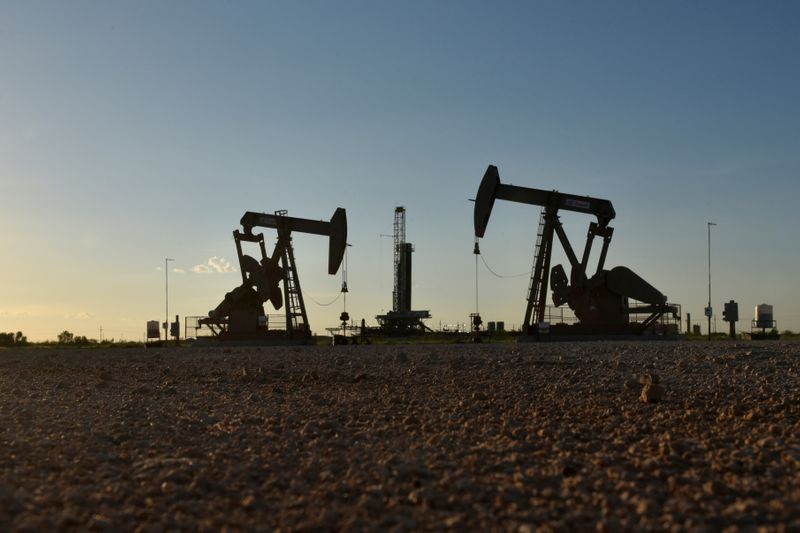By Ron Bousso and Jennifer Hiller
(Reuters) - The world's largest oil companies invested billions of dollars to boost crude production and their success has turned around and bit them -- and their shareholders.
Oil majors Exxon Mobil Corp (N:XOM), Chevron Corp (N:CVX) and Royal Dutch Shell (L:RDSa) all reported earnings on Thursday and Friday that showed key units significantly underperformed, particularly refining and chemicals. Investor discontent with weak returns, previously concentrated on smaller shale companies or oil services firms, has worked its way up to the majors.
In the last six months, the broad S&P 500 is up 10.4%, while Chevron shares have lost 8%, Shell is down 10%, and Exxon has lost 12%.
The world's oil-and-gas giants have been hit by falling oil and natural gas prices, weaker margins in chemicals and refining due to sagging demand, and growing investor discontent with their response to a warming planet.
To keep investors onboard, oil majors are cutting costs and selling billions of dollars worth of assets around the world to focus on new developments and the most profitable businesses.
The global economic slowdown in recent months, amplified by the coronavirus outbreak, has further strained their income, pressuring stock performance.
“This quarter is disappointing. These companies need to focus on cutting more cost, selling their most unproductive assets, and returning excess cash to shareholders," said Kevin Holt, Houston-based manager of Invesco’s Comstock Fund, which has about $20 billion under management. "They have to do a better job.”
On Friday Exxon said quarterly profit fell 5% and Chevron reported a $6.6 billion loss on a $10 billion impairment charge. On Thursday, Shell said fourth-quarter profits were cut in half, and its shares fell to near a three-year low.
Booming output in the United States and other places such as Brazil has sharply boosted world crude production in the last few years. The shale boom has pushed U.S. output alone past 13 million barrels per day, with natural gas output also at a record and poised to keep growing.
The lower profits and weaker cash generation follow years of deep cost cuts and asset sales following the 2014 oil price crash which led to a strong recovery and boards committing to boost shareholder returns.
But weak oil prices have left many companies out of pocket. Shell this week slowed the pace of share buybacks as its debt ballooned. Exxon and Chevron responded to the shale boom by laying out ambitious spending plans, and all three have run into a global chemicals glut, the effects of the U.S-China trade war, and weakening margins in fuels.
The pain has been felt most in the chemical segment, where companies have invested heavily in recent years, betting on growing Asian demand.
Shell reported a 65% drop in chemical earnings in 2019 from a year earlier, while oil product sales declined by 3%. Exxon's chemicals division saw an 81% decline in earnings in 2019.
Chemicals demand "in some cases is actually disappearing," Shell CEO Ben van Beurden said on Thursday. "Asia is the toughest because that is where the demand destruction is mostly."
(GRAPHICS: Exxon vs. Shell in 2019: https://fingfx.thomsonreuters.com/gfx/ce/7/8359/8340/Pasted%20Image.jpg)
Shell, which sold over $30 billion of assets between 2015 and 2018 to pay for the acquisition of BG Group, aims to sell an additional $10 billion in 2019 and 2020.
Van Beurden said the Anglo-Dutch company is currently marketing around $13 billion of assets around the world.

Exxon, which is investing heavily in ramping up production in the Permian and in Guyana, has launched a $25 billion divestment program.